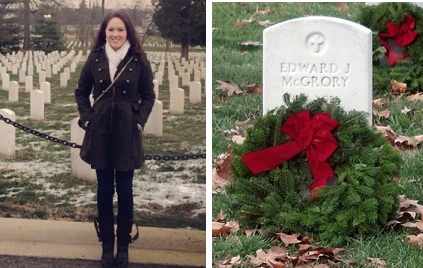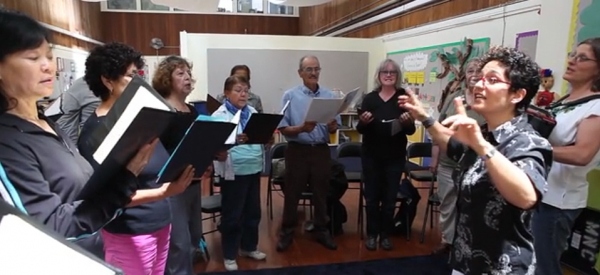Supreme Court Rules On Limitations Period In ERISA Denial Case
John Dedon On Estate Planning: Estate Planning – What a Difference a Year Makes
In contrast to this time last year, when clients were frantically gifting to save estate tax before adverse tax law changes, this year has returned to the norm, with more traditional and routine end of…
A Universal Benefit that Assists with Long-Term Care—Not in the U.S.

All taxpayers in Jersey (not New Jersey, and not any U.S. state) will soon be contributing towards the high costs of residential nursing facility and home-based care, after a vote by politicians. Ideally, this means that home owners in Jersey (part of the Channel Islands) will not have to sell their property or use other hard-earned assets to pay for long-term care, if they end up needing it.
One in four people are expected to need long-term care at some point in their lives. According to Senator Francis Le Gresley, Social Security Minister of Jersey, “the money would help remove the worry many people currently face of paying for their care in later life.”
Under the plan, the maximum contribution will start at 0.5% in 2015, rising to 1% in 2016 and will be 3% by 2044. Not all will need it, but all who pay income tax will be contributing towards it.
How will it work?
- The use of the fund will be available for people who may have value in their property, but a low income. These people will be able to borrow from the fund to cover care costs.
- People needing support will get help paying for long term care after they have contributed the first £50,000 ($68,745) towards the cost of their own care.
- The payment will not cover everything, as nursing home residents will be expected to pay £300 ($412.47) a week for accommodation and living costs. People receiving care at home will not be subject to this co-payment.
Unfortunately, there is no similar system on the horizon in the U.S. to help prevent Americans from being impoverished by catastrophic long-term care costs. In the U.S., for seniors over the age of 65, Medicaid has become equivalent to federally-subsidized long-term care insurance, just as Medicare is federally-subsidized health insurance.
In the U.S., health insurance covers most diseases. However, health insurance (including Medicare) effectively discriminate against persons with certain illnesses — such as Alzheimer’s disease or other types of brain diseases causing dementia or loss of the ability to function independently. Anyone who gets one these “wrong types of diseases” must sadly become officially “impoverished” under federal and state Medicaid rules in order to gain access to the basic care that they need — all because our health care system says that the care these persons need is not health care, but long-term care.
For this reason, Medicaid planning is not only ethically justified — it is often imperative to the individual’s quality of life. Please read our webpage and watch our video on ”Why Medicaid Planning is Ethical” for more details.
If you have not done Long-Term Care Planning, Estate Planning or Incapacity Planning (or had your Planning documents reviewed in the past several years), or if you have a loved one who is nearing the need for long-term care or already receiving long-term care, call us at our Virginia Elder Law Fairfax office at 703-691-1888 or at our Virginia Elder Law Fredericksburg office at 540-479-1435 to make an appointment for a no-cost consultation.
Federal Judge Certifies Class Of Health Care Purchasers In Hospital Merger Case
John Dedon On Estate Planning: Estate Planning – What a Difference a Year Makes
In contrast to this time last year, when clients were frantically gifting to save estate tax before adverse tax law changes, this year has returned to the norm, with more traditional and routine end of…
Conn. Federal Judge Grants Injunction To Halt Termination Of Medicare Contracts
John Dedon On Estate Planning: Estate Planning – What a Difference a Year Makes
In contrast to this time last year, when clients were frantically gifting to save estate tax before adverse tax law changes, this year has returned to the norm, with more traditional and routine end of…
Connecticut Federal Judge Denies Injunction In Medicare Classification Suit
John Dedon On Estate Planning: Estate Planning – What a Difference a Year Makes
In contrast to this time last year, when clients were frantically gifting to save estate tax before adverse tax law changes, this year has returned to the norm, with more traditional and routine end of…
Health Insurer Sues Surgical Center For Submitting Fraudulent Claims
John Dedon On Estate Planning: Estate Planning – What a Difference a Year Makes
In contrast to this time last year, when clients were frantically gifting to save estate tax before adverse tax law changes, this year has returned to the norm, with more traditional and routine end of…
Claims Administrator Seeks Declaration That It Need Pay Only ‘Allowed Amounts’
John Dedon On Estate Planning: Estate Planning – What a Difference a Year Makes
In contrast to this time last year, when clients were frantically gifting to save estate tax before adverse tax law changes, this year has returned to the norm, with more traditional and routine end of…
Giving Back: Farr Law Firm Participates in Wreaths Across America

In an effort to show support for veterans and honor their families this holiday season, the Farr Law Firm participated in the 5th Annual Wreaths Across America. Wreaths Across America is a nonprofit organization best known for its annual wreath-laying ceremony at Arlington National Cemetery and 850 other military cemeteries across the nation and overseas.
Remembering those who served our country in the spirit of the holidays brought thousands of veterans, family members and active duty service members together to participate in the event. This year, Farr Law Firm sponsored 10 wreaths on National Wreaths Across America Day, Dec. 14, 2013. These wreaths were laid at Arlington National Cemetery by thousands of volunteers, including our own Grace Everitt (pictured above) – one of our Medicaid Paralegals.
“The mission is to honor those who have made the ultimate sacrifice to protect our rights as American citizens,” said Caroline Kelly, one of the project’s leaders. The green balsam fir wreaths with red bows are purchased and donated by individuals, businesses and community groups, such as The Farr Law Firm. This year, volunteers and family members placed more than 120,000 remembrance wreaths on headstones throughout Arlington National Cemetery.
During the holiday season and every day, we honor military veterans and the sacrifices they have made and are making to preserve our liberty and freedom. Many veterans and their families are unaware that laws have been passed to entitle them to special benefits and pensions, including the Veterans Aid and Attendance pension.
Veterans Aid Attendance pension benefits are intended to be a form of financial assistance to meet the care needs of veterans and their surviving spouses. See below for details about eligibility:
- If you are younger than age 65, then you must be completely disabled in order to receive this benefit.
- Those over 65 do not have to be disabled. However, the veteran or spouse must be in need of regular aid and attendance due to inability to dress oneself, feed oneself, loss of coordination or other conditions, as described on our website. The need must be scheduled and ongoing aid and attendance from someone else, but does not need to be 24-hour care.
- You or your spouse must have served on active duty for at least 90 days, at least one day of which occurred during a period designated as wartime (see our website). There must have been a non-dishonorable discharge as well. Single surviving spouses of such veterans are also eligible.
For more details about Veteran’s Aid and Attendance and other veterans’ benefits, please watch this video. If you would like to sign up to receive Evan Farr’s Aid Attendance 4-Part Mini Series via e-mail, please click here.
Are you a veteran, a veteran’s spouse, or a family caregiver for a veteran? As an Accredited Attorney with the U.S. Dept. of Veterans Affairs, I understand both the Veterans Aid and Attendance Benefit and the Medicaid program and the interaction between both benefit programs. We work with veterans and their spouses to evaluate whether they qualify for The Veterans Aid and Attendance Benefit and/or Medicaid, and we deal with all the paperwork. Learn more at http://www.VirginiaElderLaw.com and call us at our Virginia Elder Law Fairfax office at 703-691-1888 or at our Virginia Elder Law Fredericksburg office at 540-479-1435 to make an appointment for a no-cost consultation.
Thank you for serving our country and best wishes to all for a happy and healthy holiday!
Lawyers’ Use of Drones: Past, Present, & Future
1879: E.S. Drone, A Treatise on the Law of Property in Intellectual Productions in Great Britain and the United States
1958: The Levys discovered water in their cellar and called in a plumber named Van Drone
1965: People of the State of New York v. Milton Drone
1971: Under these circumstances, the wife should be encouraged to continue to be self-supporting rather than becoming an alimony drone.
1973: Oh, God. It’s Kingsfield. He’s droning on and on about contracts again.
1980: WHEREAS, Arthur Drone conveyed the strip of land in question to Dale and Charlene Garvey
1994: I don’t know. Give it to the drones in compliance. That’ll keep them busy.
1999: Geez, it’s just sometimes I feel like a drone. Like I just come to work, push around some papers, bill, and go home. Did I really go to law school for this?
2004: Predator drone. Huh. Sounds kinda cool. Can you get one on Amazon?
2007: Don’t drone me, bro. Seriously.
2009: I don’t care, just get more temps. It’s doc review, not rocket science. Drone work, if you ask me.
2010: Drone? What kind of drone are you talking about?
2011: I’m trying to get my head around this concept of drones.
2012: Interesting. And how exactly does one get “put in fear of being drone attacked.”
2013: We gotta get one of these drones.
2014: Robert, look into whether it’s legal to own a drone. Draft up a memo to the file.
2015: MEMO RE: Flight pattern and use of drones in a law-practice and marketing context, under FAA specifications
2016: Oh, how cute. A drone just served us with a summary judgment motion.
2017: That? Oh, it’s a lobby drone. It’s still a work in progress. Did you read our disclaimer?
2018: Who the hell used the Westlaw drone? For Chrissake, people, he charges by the nanosecond.
2019: Umm, the drones from Skadden McKenzie are here. What should I tell them?
2020: Which drone is here to testify on behalf of the corporation?
2021: I don’t know. Give it to one of the drones in compliance. They’ll have an answer within a . . . oh, hi, umm, you must be one of the drones in compliance.
2022: Mr. and Ms. Canfield, the Case Traurig Family Law Drone is now ready to represent you. Please look into its portal.
2023: I am not a drone, per se. But, yes, our discussions and the reading of your mind and data is confidential, privileged if I may say.
2024: Third Annual Proceedings of the Global Sentient Life Bar Association
2025: Yes, about calling us drones. We are not.
2026: The Sentient Drone Rights Act of 2026
2027: Drone vs. People
Singing to Promote Better Health?

As the population of seniors grows rapidly in this country, so does the need to pinpoint which lifestyle choices and activities will promote healthy aging. Recently, the University of California, San Francisco, received a $1.9 million grant from the National Institute of Health (NIH) to launch a four-year study to provide scientific-based evidence that community arts programs, such as singing in a choir, promote better health.
The study, called “Community of Voices,” involves 400 seniors who will participate in weekly, 90-minute singing sessions for one year. Qualifying choir members are at least 60 years old and for the most part, and have no prior choral experience. In exchange for three study interviews, every participant will be paid $105 and will be invited to perform in public.
The goal of the study is to evaluate how participation in these choirs influences cognition, mobility, and overall well-being — from mood, loneliness and memory to strength and balance.
The first of three groups has already formed at the Mission Neighborhood Center, and whether the study proves health benefits or not, participants are excited to be involved.
“This choir is good for me — my self-esteem is going up because I’m not in my house thinking my life has no value,” said Carlos Castro, 62, who recently had to give up his career as a massage therapist.
One of the only other studies of senior singing, by Gene Cohen and colleagues at George Washington University in Washington DC., found that participants reported better health, had fewer doctor visits and falls and added more activities to their routine when compared to seniors who did not participate in a choir.
At the Fairfax and Fredericksburg Elder Law Firm of Evan H. Farr, P.C. (www.VirginiaElderLaw.com), we are excited to share that singing in a choir may promote better health. Our firm is dedicated to helping protect seniors preserve dignity, quality of life, and financial security. If you have not done Long-Term Care Planning, Estate Planning or Incapacity Planning (or had your Planning documents reviewed in the past several years), or if you have a loved one who is nearing the need for long-term care or already receiving long-term care, call us at our Virginia Elder Law Fairfax office at 703-691-1888 or at our Virginia Elder Law Fredericksburg office at 540-479-1435 to make an appointment for a no-cost consultation.